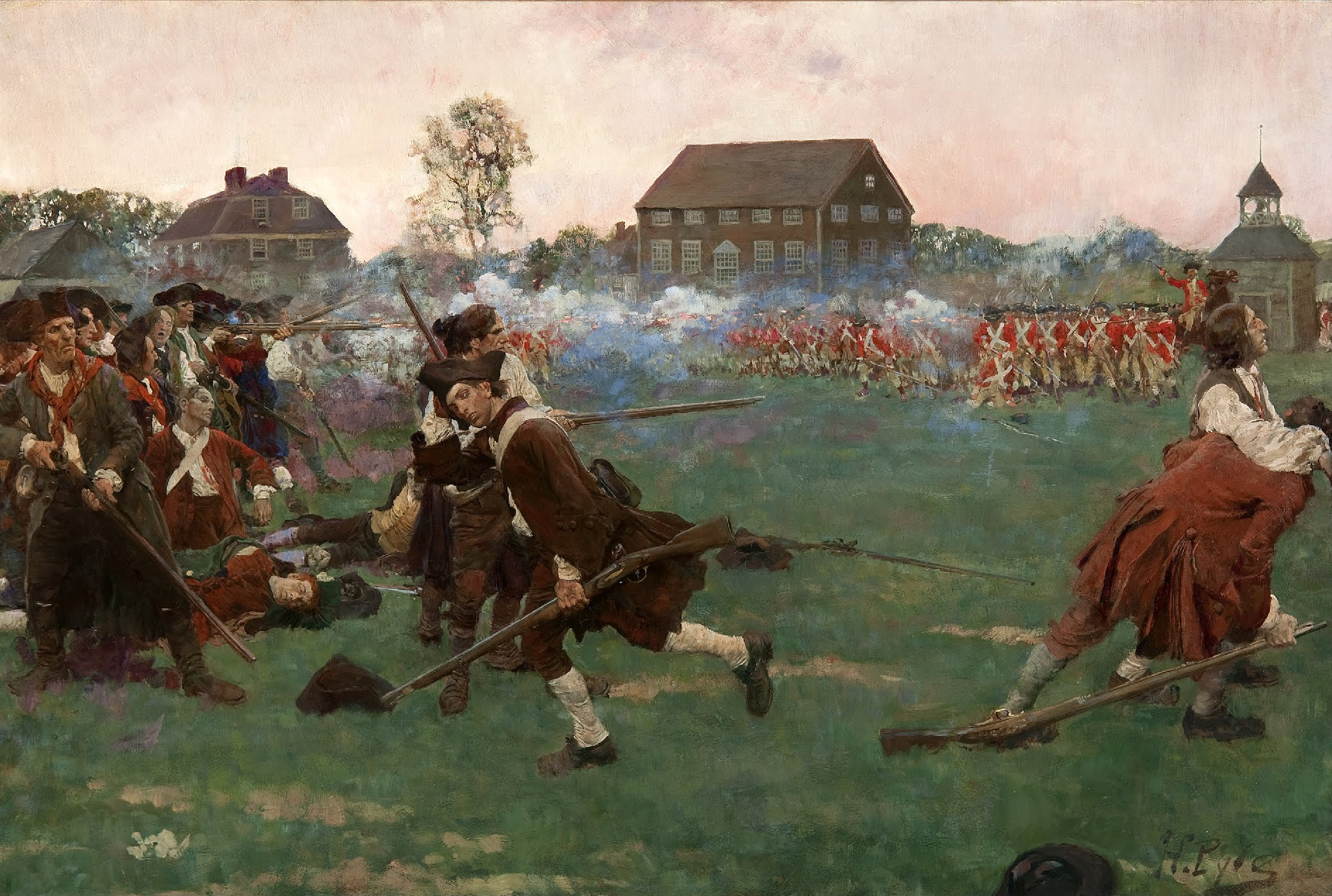Pyle, The Fight on Lexington Common, April 19, 1775, 1898
Professor Kevin Gannon on the impossibilities of objective histories ...
Some of the most valuable conversations I’ve had with my students about history are when we talk about how do we as people, as complicated and full human beings, engage with history?This idea in my writing—to say, “Here, I’m going to lay all my cards on the table”—has come out of classroom discussions that I’ve had with students, where we talk about these intensely personal, as well as political, issues like abolitionism, racism, mass incarceration.Objectivity cannot be a clinical detachment. And we need to own the fact that we’re coming into this as people; we don’t come out of vacuums. Those powerful classroom conversations convinced me that opening a textbook with such honestly can be a really powerful way to invite readers in, to invite students in.
From his blog ...
[W]hether one is writing, teaching, or contemplating History, it comes down to a question of what “matters.” But the mistake so many make is to assume there is one unchanging answer to that question. We fail our discipline and our students if we claim that what has traditionally been deemed historically significant–has mattered–achieved that status by any sort of “objective” standard. We are better served to emancipate ourselves from the iron cage of Objectivity and see Historical Facts for what they really are. Rather than create some sort of postmodern relativist hellscape where anything goes, embracing this “truth”* about History lets us acknowledge the nature of our epistemology. Freed from having to hew to some arbitrary standard that has somehow been elevated above all the other arbitrary standards, we can study, teach, and interpret History in ways which–paradoxically–might just be the most objective that we can achieve.
Teachers must remember that it's not about them. It's about exposing students to ideas and perspectives, challenging a student to think about the world beyond the end of his or her nose.

No comments:
Post a Comment